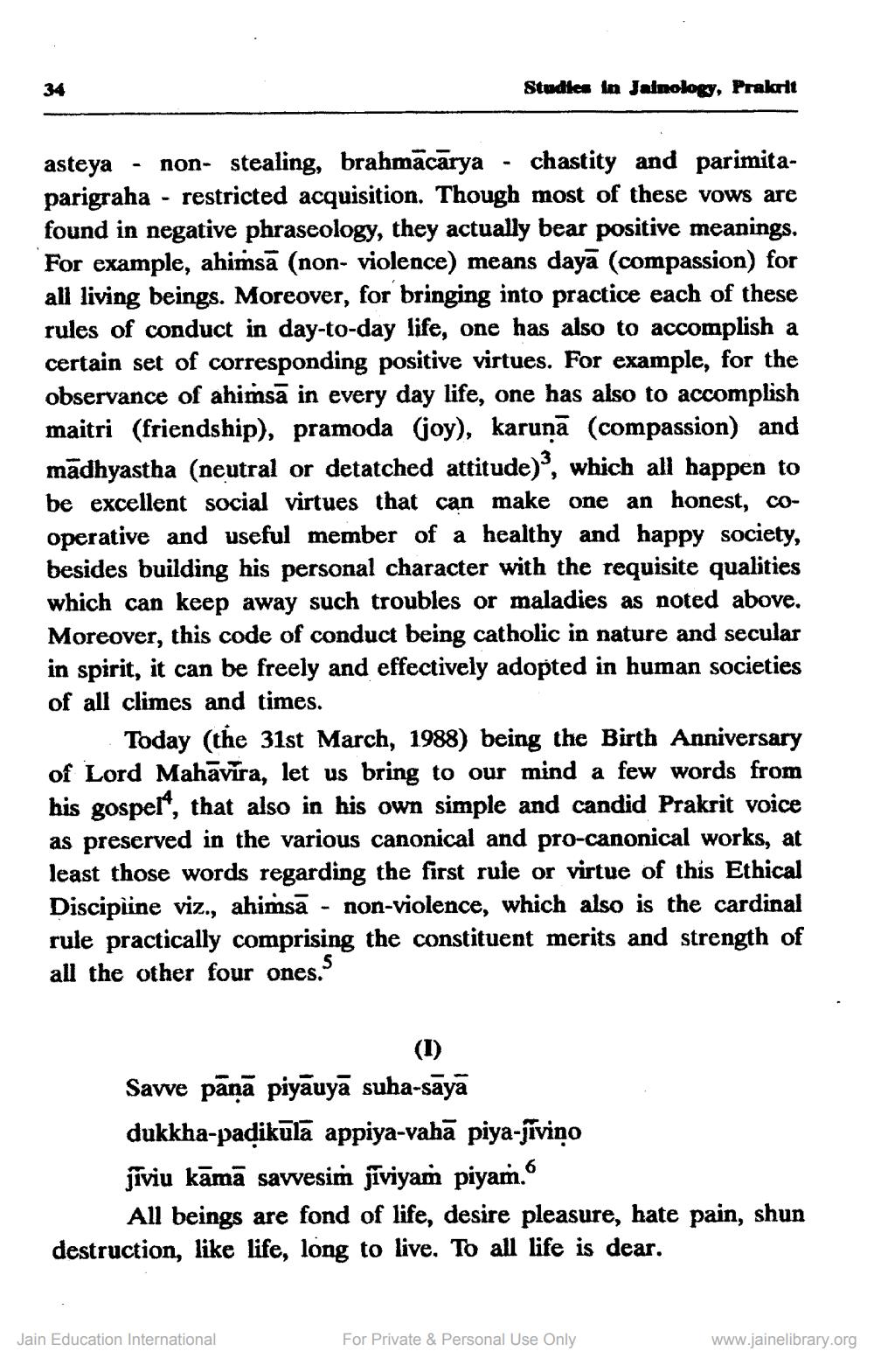________________
Studies in Jatnology, Prakalt
asteya - non- stealing, brahmacarya - chastity and parimitaparigraha - restricted acquisition. Though most of these vows are found in negative phraseology, they actually bear positive meanings. For example, ahimsā (non- violence) means dayā (compassion for all living beings. Moreover, for bringing into practice each of these rules of conduct in day-to-day life, one has also to accomplish a certain set of corresponding positive virtues. For example, for the observance of ahimsā in every day life, one has also to accomplish maitri (friendship), pramoda (joy), karunā (compassion) and madhyastha (neutral or detatched attitude), which all happen to be excellent social virtues that can make one an honest, cooperative and useful member of a healthy and happy society, besides building his personal character with the requisite qualities which can keep away such troubles or maladies as noted above. Moreover, this code of conduct being catholic in nature and secular in spirit, it can be freely and effectively adopted in human societies of all climes and times.
Today (the 31st March, 1988) being the Birth Anniversary of Lord Mahāvīra, let us bring to our mind a few words from his gospel, that also in his own simple and candid Prakrit voice as preserved in the various canonical and pro-canonical works, at least those words regarding the first rule or virtue of this Ethical Discipline viz., ahimsā - non-violence, which also is the cardinal rule practically comprising the constituent merits and strength of all the other four ones.
Savve pānā piyāuyā suha-sāyā dukkha-padikūla appiya-vahā piya-sīviņo jīviu kāmā sawesim jīviyam piyam.
All beings are fond of life, desire pleasure, hate pain, shun destruction, like life, long to live. To all life is dear.
Jain Education International
For Private & Personal Use Only
www.jainelibrary.org




